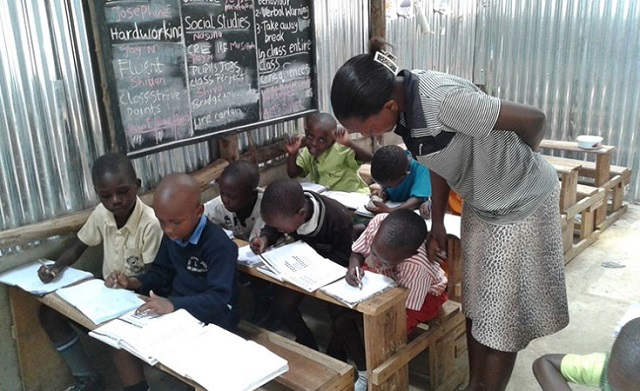
Kampala, Uganda | THE INDEPENDENT | Makerere University is moving swiftly to develop degree programmes for primary school teachers, five years after the Ministry of Education raised the bar for teacher qualifications by scrapping the lower minimum qualification requirement.
Mathias Mulumba Bwanika, the Dean of the School of Education at Makerere University, said that the move is a direct response to the 2019 National Teacher Policy, which requires all teachers, from nursery to secondary level, to hold a bachelor’s degree.
Bwanika further noted that since the policy’s adoption, the university’s School of Education has been restructuring and preparing to implement the new programmes.
“We are now in advanced stages,” said Bwanika. “We are working on a primary education degree programme, which is in the development phase. Once finalized, it will go through our internal review process before being submitted to the National Council for Higher Education for approval.”
He further added that the university’s Senate has already approved the creation of a new Department of Primary Education, which will oversee the new programme.
Alongside this development, Makerere University rolled out a Bachelor’s Degree in Early Childhood Development and Care last year, also in response to the National Teacher Policy. The policy aims to professionalize teaching and raise the standard of education by ensuring that all teachers meet the new minimum qualification requirement.
Historically, most primary and nursery school teachers in Uganda were certificate holders, having qualified through teacher training colleges after completing Senior Four. Many could then upgrade their qualifications to diplomas before eventually pursuing a degree.
With the scrapping of lower qualifications, the training of new primary and nursery school teachers came to a halt nationwide. As a result, universities have been working to create new programmes for fresh Senior Six leavers interested in pursuing teacher education at those levels.
However, the development of these new programmes has faced delays, mainly due to legal hurdles. For instance, the Teacher Bill, a critical piece of legislation designed to support the National Teacher Policy, has stalled in Parliament. While the bill was presented for a second reading, disagreements over key issues, such as the length of the degree programme and the structure of teacher internships, have held up its progress.
Under the policy, the proposed teacher education programme would be extended from three to four years, with a one-year internship required after earning a bachelor’s degree. This internship, modeled after the medical internship system, aims to provide teachers with more extensive practical experience compared to the current 8-12 weeks of school practice.
The Ministry of Education supports this proposal, arguing that a year-long internship would better prepare teachers for the classroom. Interns would be selected through a competitive application process and placed annually by the Ministry.
However, a majority report from the Parliamentary Committee on Education and Sports, presented earlier this year, recommended removing the internship component from the bill. Stakeholders who appeared before the committee acknowledged the value of the internship but raised concerns about its financial and logistical feasibility.
While the degree requirement has already been approved by Cabinet, many Members of Parliament remain opposed to the idea.
Meanwhile, the Uganda National Institute of Teacher Education (UNITE), another public University which was established to oversee teacher education as per the new policy, has already developed and received approval for its primary teacher degree programmes. However, no students have been enrolled so far, as the institute is currently preparing to admit its first intake.
****
URN
 The Independent Uganda: You get the Truth we Pay the Price
The Independent Uganda: You get the Truth we Pay the Price



